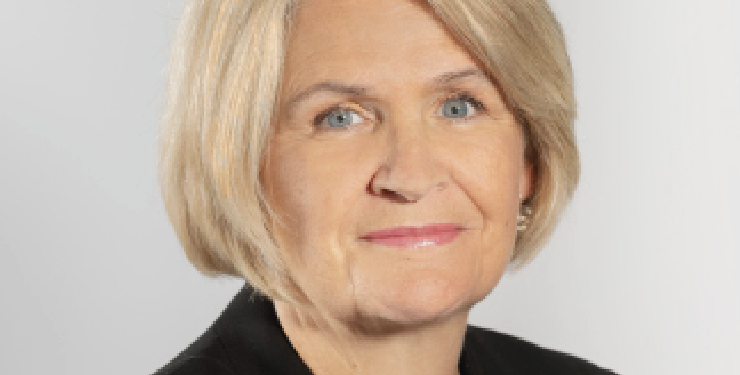SPONSORED CONTENT
When Sir Nigel Wilson was appointed group chief executive of Legal & General in 2012, he followed a long tradition of the company’s leaders who brought with them a desire to amplify the financial success of the business – and a social conscience, says Rita Butler-Jones, head of DC at Legal & General Investment Management (LGIM).
Notably, back in the 1970s, Ron Peet, one of Sir Nigel’s predecessors as CEO, helped the campaign to support families of children affected by the drug Thalidomide by putting pressure on Scottish drinks and pharmaceutical company Distillers 1 who manufactured the drug in the UK 2.
This is just one example of the principles that continue to guide the Legal & General Group’s approach to responsible investing through its investment arm, LGIM.
Over the years, Legal & General and LGIM have described the approach of investing for social good while also generating profits for shareholders as inclusive capitalism.
This means that our purpose is to improve the lives of our customers, build a better society for the long term and create value for our shareholders. Put simply, it’s investing capital for financial return and social benefit. We believe that the concept of inclusive capitalism is what sets us apart from our peers.
Balancing risks and returns
In her foreword to LGIM’s latest Active Ownership report,3 LGIM CEO, Michelle Scrimgeour demonstrates how our responsible investment strategy, and the ethos of inclusive capitalism are more relevant than ever in responding to the challenges facing our modern global economy.
Michelle highlights current concerns including the continued threats to nature posed by climate change, the need of governments to balance their net-zero goals with the equally pressing need to provide energy security in the light of geopolitical conflicts such as in Ukraine. She also refers to the global inflationary pressures that spurred the cost-of-living crisis.
Many of the underlying issues behind the headlines in 2022 are germane to our work as a responsible investor as we need to understand the triggers behind the problems before we can devise strategies to help resolve them.
It’s only then that we can develop innovative, responsible investment strategies that our clients want and need. In 2022, 95 per cent of all LGIM’s new products were ESG-related. These included net-zero corporate bond funds and exchange-traded funds (ETFs) with Paris-aligned benchmarks.
We also engage with companies, policymakers and other stakeholders on issues from the living wage, to deforestation, to board level ethnic diversity.
Yet, attempting to tackle these issues through our investment strategy and stewardship isn’t just necessary from a socially-responsible perspective: we believe that it’s also good for the long-term returns we seek to generate for our clients. This is because we believe that long-term returns can be affected by ESG (environment, social, governance) factors and so it’s essential to have an investment strategy that manages risks and unearths financial opportunities.
For those in our DC pension schemes, managing risk is a key part of selecting the funds in which we invest their savings. While we want the best possible returns for our clients and scheme members, we must also consider whether an organisation that is making good returns now is at long-term risk from a failure to future-proof itself from potential threats posed by ESG issues such as climate change. We also consider whether its business operations may cause social and/or environmental harm and need steering towards better practices.
LGIM engages with companies to support them in transitioning to more environmentally and socially responsible operations. We also use our shareholder voting power to persuade organisations to change. In extreme cases, we may even divest in certain eligible portfolios if we believe an organisation is not making suitable progress to address our concerns.
It’s not all about us – why our clients’ views matter
Just as it’s important to us to invest pension savers’ money wisely and responsibly, we also believe that it’s essential to listen to the views of members and trustees to determine the level of overlap between our voting policies and the expectations of clients and in developing future engagement topics.
In October 2022, LGIM launched its ‘Expression of Wish’ digital service in partnership with the Tumelo platform. This first-of-its-kind service enables pension scheme trustees to express their views on upcoming AGM votes – informed by the opinions of their members – directly to LGIM’s Investment Stewardship team.
The creation of a streamlined digital feedback loop provides trustees with real-time updates of how LGIM voted and a detailed rationale of why, shortly after the vote.
It also supports pension scheme trustees with their additional regulatory reporting and decision-making in an easy, navigable way.
Our scale means we can give increasing numbers of scheme members this opportunity. Piloted with one of our largest trust-based clients with almost 70,000 members, the service is being broadened to LGIM’s DC trustee client base, which represents 2.15 million scheme members in the UK, as well as other interested LGIM clients.
Building better futures – our rationale on repeat
Inclusive capitalism doesn’t mean we have to compromise our commercial decisions or the profits we generate for our shareholders, but it does allow us to use our financial influence to help address some of society’s biggest problems such as climate change, antimicrobial resistance, housing crises, gender and
ethnicity disparity, and the need for regional economic regeneration.
For many years we’ve built our credentials as a socially responsible asset manager that considers the impact of our investment decisions on the wider world around us. Yet our commitment to creating better futures through responsible investing only gets stronger as the years go by.
For us in LGIM’s DC team, doing the right thing never goes out of fashion and we’ll continue to keep innovating in the hope of offering financially secure retirements built on responsible investment principles.





